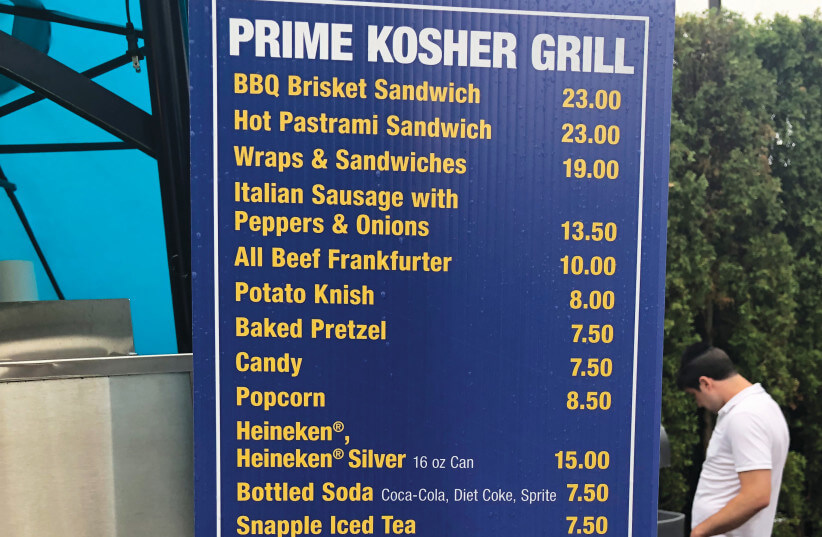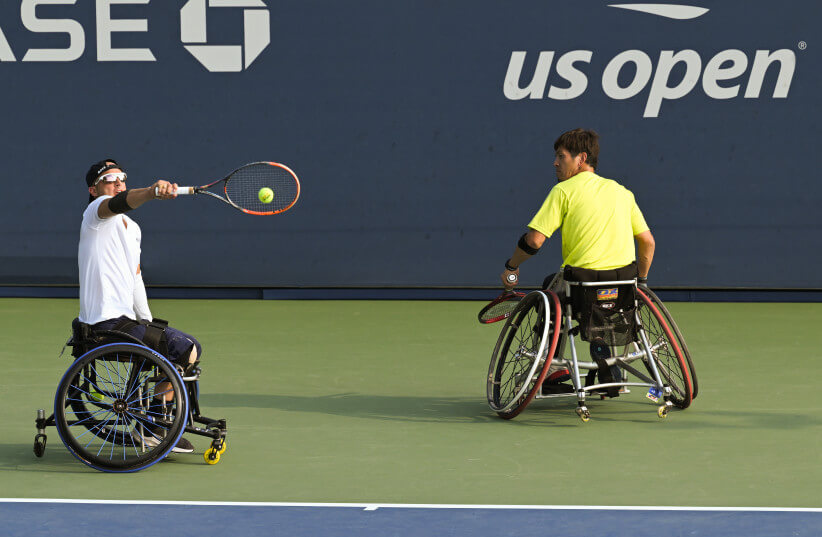The Original Article is Posted at JNS.org
Israeli doubles team Daniel Cukierman and Edan Leshem retired against the Czech team of Tomas Machac and Adam Pavlasek due to an injury to Cukierman’s hamstring.
Israel’s hopes for a dramatic comeback from a 2-0 deficit against Czechia on day 2 of the 2024 Davis Cup World Group in Trinec, Czechia were quickly dashed after only five games on Sunday when the Israeli doubles team of Daniel Cukierman and Edan Leshem retired against the Czech team of Tomas Machac and Adam Pavlasek due to an injury to Cukierman’s hamstring. Czechia advances to September’s Group Stage Finals for the second year in a row. Israel returns to Group I and will be in action in September.
The Czech team got off to a fast start, breaking the Israelis in the first game of the set and holding serve in the second game. In game three, Cukierman grasped his hamstring in pain after trying to chase down a Machac lob. He returned from a medical time out with his hamstring taped and briefly continued the match. The Israelis, now down 4-0, won their first game as Cukierman held serve. He was in obvious pain and retired, giving the Czechs a 4-1 win and a sweep of the best of five series.
The fourth match, no longer necessary to determine the series outcome, was played with Israel’s Orel Kimhi (#456) losing to Czechia’s Vit Kopriva (#115) 3-6, 6-3, 11-9. Kimhi was the only Israeli in the two-day affair to win a set versus the Czechs.
In Saturday’s contest, Israel’s 24-year-old lefty Yshai Oliel (#415) battled 18-year-old Jacob Menshik (#127), losing the 1 hour, 34 minute match 6-1, 7-5. Oliel, up 6-5 in the second set, nearly managed to take the match to a third set.
In the Saturday’s second match, Cukierman (#465) faced Jiri Lehecka, current #31 and former world #23, fresh off a 2nd round appearance in last month’s Australian Open. Cukierman lost the first set 6-1 and battled back down 6-5 to take the second set to a tie-breaker; he went on to lose 7-6.
“It was very difficult for me, I felt like I lost timing and confidence in the first set, but with the help of the team I managed to come back in the second set and play my game, put more balls into the field and try to attack as much as possible,” said Cukierman. “We were close throughout the whole process,” he added.
In commenting on both of Saturday’s matches, former Israel tennis great and current Team Captain Jonathan (“Yoni”) Erlich noted, “The games were quite similar. The Czech players started the game by storm and our players started defensively. They had chances to turn the score around but the Czech players played excellently and knew how to close the game. It’s definitely a tough mission to come back from 2:0 but we will try to focus on our next game [doubles] and hopefully the momentum will change. We must prepare ourselves and believe that it can be done.”
Due to Cukierman’s impressive performance on Saturday, Erlich decided to substitute Cukierman for Roy Stepanov to team up with Leshem for Sunday’s doubles match. The extent of Cukierman’s injuries will be determined upon the team’s return to Israel.
While Israel’s team members anticipated tough competition, they were not intimidated by the Czech team. Cukierman noted before the tournament, “We have played against the Czech players before and we know them well. They are very strong and there are clear differences in the ranking between the two teams. Of course we are the underdogs, but at the Davis Cup, you can’t tell and we will fight and try to surprise.”
Oliel added, “Me and Tomas Machac—we grew up together and I know him well. He of course made an amazing jump. They are a great and strong team and we will have some tough games. We train very well and hope that we will be able to bring our abilities to fruition and win.”
While Erlich knew the Israeli team was facing stiff competition, playing the Czech team has special meaning for him.
“The last match against the Czech Republic was also the last in my career, so the memories are pleasant and exciting also thanks to the victory in the doubles game and on the other hand less happy than we lost in the end. I hope this time we can do a better result,” he said.
In 2022, the Czech team beat Israel 3-1 with Erlich and Cukierman scoring an impressive 6-3, 6-4 victory over Jiri Lehecka and Tomas Machac.
The 12 winning nations (out of the 24 in action around the world this weekend) will secure a place in the Davis Cup Finals Group Stage in September—alongside 2023 champions Italy, 2023 runners-up Australia and wild cards Great Britain and Spain.






